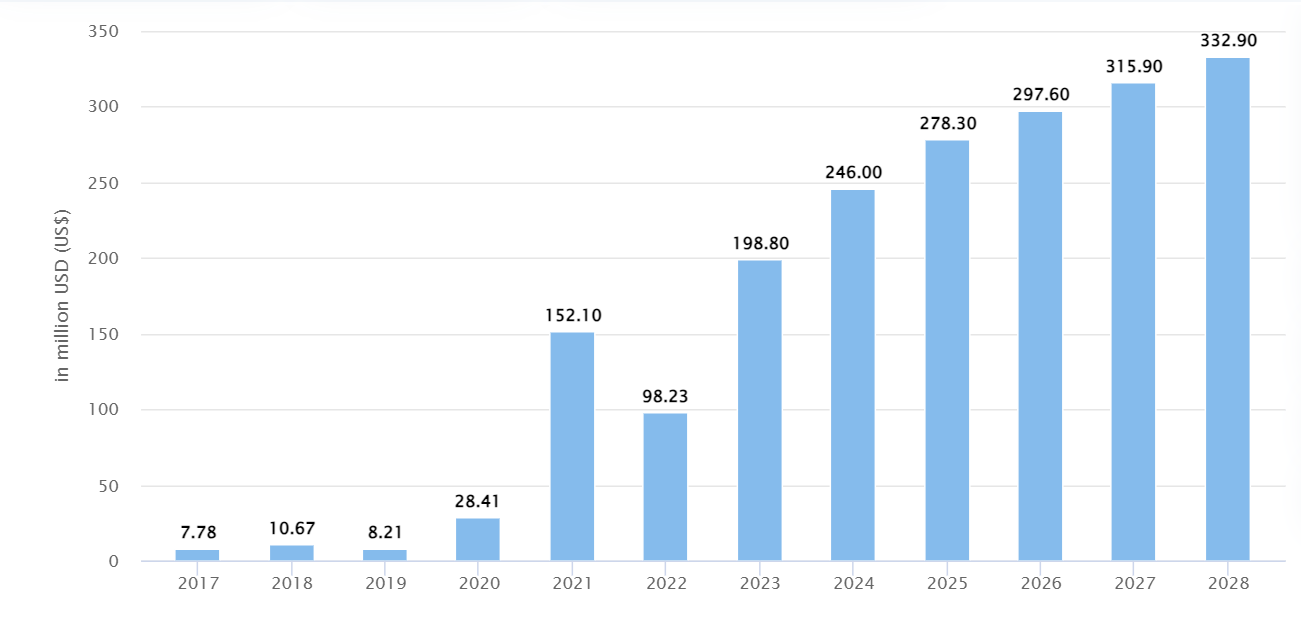Yesterday, the governor of the Bank of Ghana, the country’s central bank, said that crypto regulations will be in place by the end of 2025. This follows draft guidelines the bank published last year.
By introducing a strong legal footing for crypto investors and companies, Ghana will join nine other countries on the continent that have laws in place for digital assets.
In general, crypto adoption is growing in Africa, particularly in Sub-Saharan Africa. Grassroots adoption and retail activity make it the third-fastest-growing region for crypto.
Lawmakers are taking notice. Here’s a look at 10 countries that have developed, or are developing, specific legal frameworks:
Ghana
Johnson Asiama, governor of the Bank of Ghana, said at the International Monetary Fund’s meeting on Thursday that his country will be able to deliver robust crypto regulations by the year’s end.
“That bill is on its way to parliament. Hopefully before the end of December, we should be able to regulate cryptocurrencies in Ghana,” he said.
The regulations are a long time coming. The bank first published draft legislation in August 2024. In those guidelines, the bank proposed an eight-pillar framework, which included increasing registration and reporting requirements for exchanges and virtual asset service providers (VASPs).
The new laws aim to address growing interest in crypto among Ghanaian investors. Some 3 million Ghanaians, or nearly 9% of the country’s population, use crypto.

South Africa
In 2022, the Financial Sector Conduct Authority (FSCA) of South Africa officially declared crypto to be a financial product. This brought crypto under the Financial Advisory and Intermediary Services Act. This means digital assets are regulated with proper licensing regimes, consumer protections and user verifications in place.
Since then, the FSCA has issued dozens of licenses, and international crypto firms have set up operations there. As of Oct. 10, a partnership between QR payments provider Scan to Pay and Bitcoin (BTC) payments company MoneyBadger allows South Africans to pay with crypto at 650,000 stores in the country. On Wednesday, Ripple announced a partnership with South African bank Absa to provide crypto custody for the bank’s customers.
Related: A Bitcoiner’s guide to South Africa’s Garden Route
Lawmakers in South Africa are still tweaking regulations. In August, Finance Minister Enoch Godongwana announced a draft framework for cross-border crypto transactions. He said there are still “practical challenges and implications if cryptocurrency is viewed as money.”

Mauritius
In February 2022, the island nation of Mauritius passed the Virtual Asset and Initial Token Offering Services Act. According to the Mauritius International Finance Centre, the act “sets out a comprehensive legislative framework to regulate the business activities of virtual assets service providers and initial token offerings.”
Token issuers, wallets, exchanges and custodians are regulated by the Financial Services Commission. The act also established standards for initial token providers, aligning with the standards set by the Financial Action Task Force (FATF).
Botswana
Botswana’s Virtual Assets Act No. 3 of 2022 established a regulatory framework for crypto overseen by the Non-Bank Financial Institutions Regulatory Authority (NBFIRA). Under the act, VASPs like exchanges and token issuers have to register with the NBFIRA. It also establishes due diligence and consumer protection standards.
The central bank has stated that it sees “minimal” risk from cryptocurrencies. But in December 2024, it said that additional regulations are still needed.
Nigeria
In April 2025, Nigeria formally recognized crypto assets for the first time with the passage of the Investment and Securities Act (ISA). The ISA defined crypto as securities and put VASPs, exchange operators and other crypto businesses under the scope of the Securities and Exchange Commission (SEC).
Last month, the Nigerian SEC refined its definitions for tokens into four categories for regulatory oversight. The agency said its goal was “not to hinder technology or stifle innovation” but to create standards by which it could “encourage ethical practices that ultimately make for a fair and efficient market.”
Uncertain regulations in Nigeria, namely the lawsuit against crypto exchange Binance and the arrest of Binance executive Tigran Gambaryan, left many in the industry wary about doing business there. Regulators have said that they are “open for business.”
Namibia
In 2023, Namibia enacted the Virtual Assets Act (VAA). Similar to many other frameworks, it created guidelines for VASPs, including licensing regimes and supervision. The National Assembly said its top aims were to protect consumers, prevent market abuse and lower the risks of money laundering and illicit finance.

The Namibia Financial Institutions Supervisory Authority, which serves as the primary regulator, has a two-step licensing model (first provisional, then full license). Applications are also evaluated by the central bank.
Tanzania
The Tanzanian government passed the Finance Act of 2024, which introduced 3% tax on payments made for digital asset exchanges or transfers to residents. The act broadly defines cryptocurrencies, tokens and non-fungible tokens (NFTs) as “digital assets” and requires that platforms be registered as holding agents with the tax authority.
Little progress has been made since, but it reflects a shift from the government’s previous hard-line approach, which had banned crypto. In 2023, the Bank of Tanzania announced it would start investigating a central bank digital currency but would take a “phased, cautious and risk-based approach.”
Seychelles
In August 2024, the Seychelles National Assembly passed the Virtual Asset Service Providers Act (VASPA). It came into effect on Sept. 1 of that year.
The act requires VASPs to get a license from the Financial Services Authority. Along with the usual Anti-Money Laundering and Know Your Customer requirements, it also requires NFT and initial coin offering promoters to register with the authorities.
The country’s status as a relatively lax financial hub has made it a magnet for investment and registrations. A June report from Tech in Africa states that the country attracted 31% of all blockchain funding over the last year.
Kenya
On Oct. 13, the Kenyan parliament passed the Virtual Asset Service Providers Bill regulating digital assets and cryptocurrencies. Treasury Cabinet Secretary John Mbadi announced the draft legislation in January, saying the government was “committed to creating the necessary legal and regulatory framework” for cryptocurrencies.
The act will establish the central bank as the licensing authority for stablecoin and token issuers, while the Capital Markets Authority will oversee and license exchanges and other trading platforms.
Kuria Kimani, chairman of the finance committee in the national assembly, said, “We are hoping that Kenya can be now the gateway into Africa … Most of the young people between 18 and 35 years of age are now using virtual assets for trading, settling payments and as a way of investment or doing business.”

Rwanda
In March 2025, the Capital Markets Authority (CMA) and the National Bank of Rwanda jointly introduced a draft law regulating crypto and VASPs. The law would create licenses for VASPs but also represents a more cautious approach than some other countries. The law would ban crypto mining, crypto ATMs and mixing services.
Local regulators were concerned about the potential misuse of crypto, citing guidance from the FATF. Carine Twiringiyimana, manager of licensing and approvals at CMA, told local media, “A key concern … is that virtual assets can be used as a channel for money laundering. That’s why these regulations are being introduced to mitigate such risks while also providing clear guidance to the public and virtual asset service providers.”




